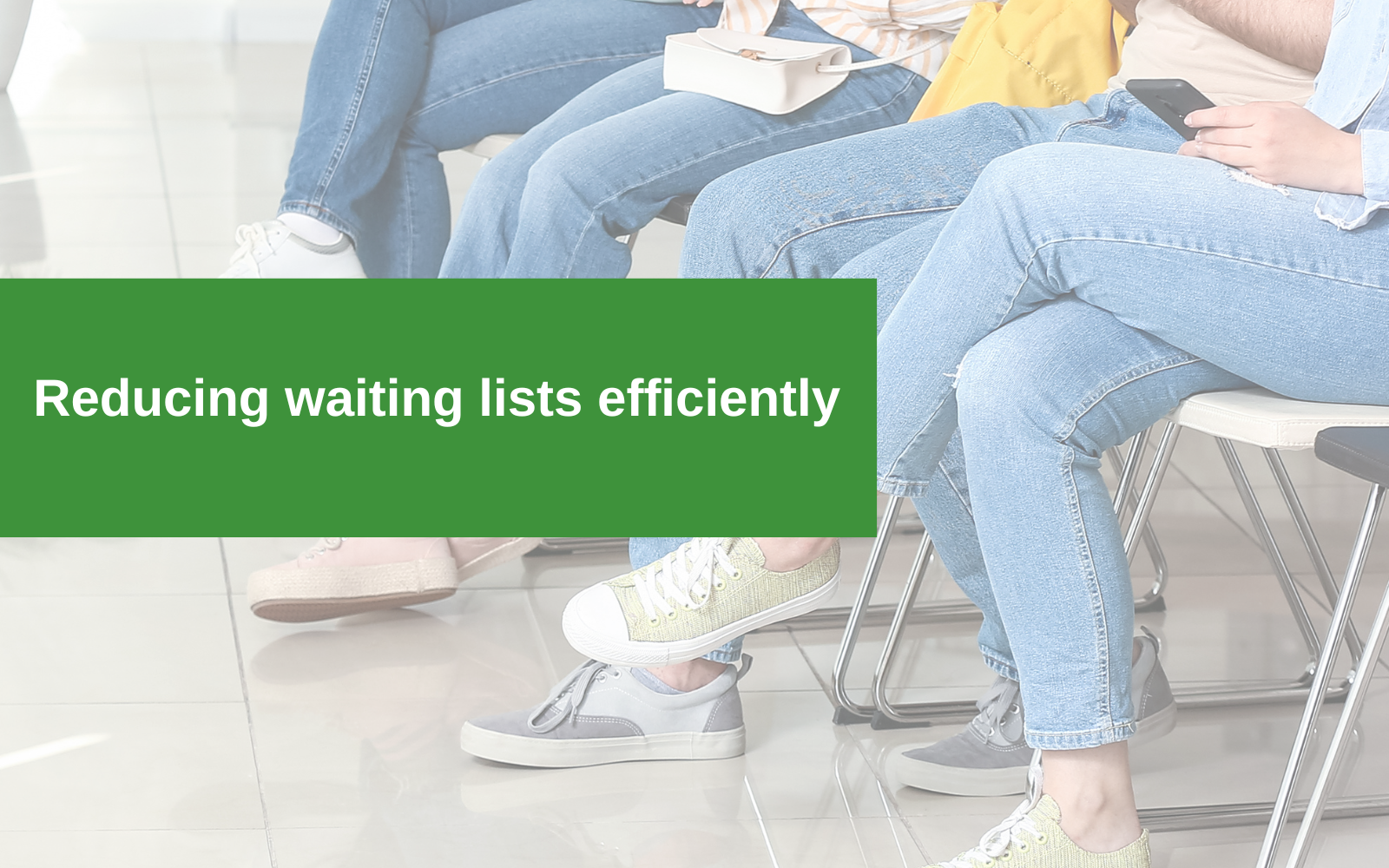The latest 2024/25 priorities and operational planning guidance highlights key objectives and focus areas for systems to continue to make progress on recovering core services and productivity.
This includes eliminating waits of over 65 weeks for elective care as soon as possible (and by 30 September 2024 at the latest) whilst also focussing on reducing the overall list size and improving productivity.
Clinically triaging and validating waiting lists is a solution that is proven to reduce unnecessary outpatient appointments and improve patient safety. However, it’s one that requires clinical input, which can be challenging in light of existing pressures, including specialist shortages.
Bringing in ‘virtual locum’ resource to not compromise this piece of activity pays off for your wait times and patient experience instantly:
Clinically-led Specialty Referral Triage and Validation service
Our clinically-led Referral Triage and Validation service, delivered by NHS consultants, provides virtual management plans for long waiters or new referrals and has proven to reduce waiting lists by 29% on average, even more in some specialties.
The service supports Trusts with clinical capacity challenges by bringing in temporary consultant capacity in the form of ‘virtual locums’. They follow local pathways and protocols under the leadership of the Trust’s clinical leads.
Projects can launch in as little as a week with the capacity to review 1,000+ cases per specialty/month, clearing waiting lists and reducing clinical risk at pace.
Recent project examples and outcomes
Cardiology
We recently completed over 12,000 referrals across several NHS Trusts.
Where applicable, cardiology referrals were sent straight to test, with the test results reviewed again by the consultant before deciding if an appointment was needed or if the referrals could be returned to primary care with a management plan:
- 40% of referrals were safely removed from the waiting list and returned to primary care with a management plan.
- 14% were identified as requiring an upgrade to ‘urgent priority’.
- The remaining referrals were accepted and booked in with the relevant clinicians for an outpatient appointment (e.g. at the nurse-led clinic or with a consultant).
Dermatology
Over 1,000 general dermatology referrals were recently triaged across one NHS Trust, seeing:
- 27% of referrals safely removed from the waiting list and returned to primary care with comprehensive management plans.
- For all other referrals, the triage work ensured patients were on the correct pathway, with clinical risks being assessed, including 14% of referrals prioritised and upgraded to the urgent suspected cancer pathway.
E.N.T.
We recently completed over 6,000 referrals across several NHS Trusts:
- 30% of referrals safely removed from the waiting list, 29% of which were returned to primary care with comprehensive management plans and 1% booked into diagnostics.
- The remaining 70% of referrals were directed to the right place, first time, with:
- 63% booked into a routine outpatient appointment (43% without additional diagnostics needed, 20% with diagnostics needed)
- 5% accepted for an urgent appointment
- 1% upgraded to urgent or downgraded to routine
Gastroenterology
Over 1,000 gastroenterology referrals across one NHS Trust have been reviewed through the service recently, resulting in:
- 36% safely removed from the waiting list through management plans.
- 35% booked for a routine appointment (31% without additional diagnostics needed and 4% with diagnostics needed).
- 5% upgraded to the 2WW pathway.
- 23% sent straight to test, and the test results will be reviewed again by the consultant, who will then advise whether appointments are needed or if the patients can be returned to primary care with a management plan.
Gynaecology
Over 4,000 referrals were recently reviewed across several NHS Trusts, resulting in:
- 43% of referrals safely removed from the waiting list and returned to primary care with comprehensive management plans.
- 48% booked for a routine appointment without diagnostics.
- 7% upgraded to a red flag pathway.
- 2% upgraded to an urgent pathway.
Neurology
Over 4,000 referrals were recently reviewed across several NHS Trusts, resulting in:
- Between 30-50% of referrals were safely removed from the waiting list (e.g. returned to primary care with a management plan or redirected to a more suitable service).
- The remaining referrals were directed to the right place, first time (e.g. upgraded to 2WW, accepted as a routine appointment either with/without diagnostics prior to the appointment etc).
For more information, get in touch:
For further information about how we can support your area, email info@consultantconnect.org.uk, call us on 01865 261 467 or fill in the short form below to request a call back from the team:
